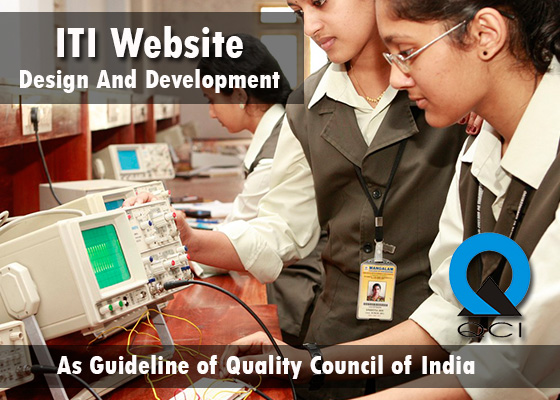MGPE-010: Conflict Management Transformation and Peace Building By Dr. Satish Kumar |
Human race is engaged in conflict, aggression, warfare, and violence seemingly equate with the human condition since the early days of civilisation. Equally, humans have sought, as long as there has been conflict, to handle conflict effectively by containing or mitigating its negative consequences. This course is an effort to understand some of the major theoretical perspectives of conflict management, conflict transformation and conflict resolution. Since these concepts are very important for our comprehensive understanding that how we can minimize the level and structures of conflicts and to create new avenues of cooperation and compatibility. Conflict management involves the control, but not resolution, of a long-term or deep-rooted conflict. This is the approach taken when complete resolution seems to be impossible, yet something needs to be done. In cases of resolution-resistant or even intractable conflict, it is possible to manage the situation in ways that make it more constructive. Conflict transformation is different from the other two, because it reflects a better understanding of the nature of conflict itself. Conflict transformation is also a prescriptive concept. It suggests that the destructive consequences of a conflict can be transformed so that self-images, relationships, and social structures improve as the consequence of conflict, instead of being harmed by it. Usually, this involves transforming perceptions of issues, actions, and other people or groups. In this course we will try to learn the nuances of abovementioned three broad concepts through western as well as Non-western throries, perspectives and approaches.
Course layout
|
WEEK |
TOPICS |
|
Week-1 |
NATURE OF CONFLICTS (i) Conflict Resolution Mechanisms Transcending Incompatibility Incompatibility Analysis |
|
NATURE OF CONFLICTS (ii) Conflict Triangle Conflicts: Cyclical or Dialectical Inevitability of Conflicts |
|
|
Week-2 |
|
|
Inherency Theories Contingent Theories Interactionist Theories |
|
|
Sources of Conflict Culture Ideology Religion Identity |
|
|
Week-3 |
METHODS OF CONFLICT ANALYSIS |
|
Focusing on Conflict Dynamics |
|
|
Focusing on Basic Needs |
|
|
Focusing on Rational Calculations |
|
|
Identifying Key Elements in Conflict Analysis |
|
|
Week-4 |
CONFLICT ASSESSMENT AND PROGNOSIS Methods of Conflict Resolution Limitations of Conflict Assessment |
|
The Challenges That Lie Ahead The Importance of Cultural Differences Conflict within the Field of Conflict Resolution |
|
|
Week-5 |
RESPONSES TO CONFLICTS (i) |
|
Post-conflict Recovery Role of International Community Strengthening UN Coordination |
|
|
RESPONSES TO CONFLICTS (ii) Transparency and Accountability Coordination Mechanisms Financing Recovery |
|
|
PROGRESS ASSESSMENT |
|
|
Week-6
|
OBJECTIVES OF CONFLICT MANAGEMENT |
|
Methods and Different Approaches of Conflict management Conflict Management in Cultural Context Social and Environmental Dimensions of Conflict Arms Proliferation and Conflict Management Criticism of the Concept of Conflict Management |
|
|
Conventional approach Normative political theory Coser and conflict management Galtung and peace research John burton and human needs theory |
|
|
UNITED NATIONS AND CONFLICT MANAGEMENT |
|
|
Week-7 |
CONFLICT MANAGEMENT: METHODS AND TECHNIQUES |
|
Analysing Organisational Conflict Different Mathods for Conflict Management Locating a superordinate goal Modes of Conflict Management |
|
|
Case Studies: Punjab & Nagaland |
|
|
Week-8 |
CONFLICT TRANSFORMATION Concept of ‘Conflict’ in Conflict Transformation Approaches to Conflict Transformation Traditional (Non-western) Approaches |
|
Western Approaches of Conflict Transformation Structural Approach Contingency Approach Development Approach State Reform Approach Systemic Approach Civil Society Approach Dialogical Approach Step-by-step Approach Procedural Approach |
|
|
Mix of Western and Non-western Approaches Non-violent Approach |
|
|
Perspectives on Conflict Transformation |
|
|
Week-9 |
THEORIES OF CONFLICT TRANSFORMATION |
|
Thinkers and their Theories of Conflict Transformation Gene Sharp Adam Curle Terrell A. Northrup Edward Azar Raimo Vayrynen David W. Augsburger Johan Galtung John Paul Lederach |
|
|
Week-10 |
GANDHIAN VISION |
|
Critique of Modern Civilisation Gandhi’s idea of Swaraj Swadeshi and Self-reliance Sarvodaya and Antyodaya |
|
|
Trusteeship Role of Women Freedom from Untouchability Conservation of Resources India’s place in Modern World |
|
|
CASE STUDIES: CHAMPARAN AND SOUTH AFRICA |
|
|
Week-11 |
PEACEBUILDING – MEANING AND SIGNIFICANCE Normative and Evolutionary framework Multiple Actors and Domains Principal Challenges |
|
APPROACHES TO PEACEBUILDING Concept of Peace-building Integrated or Whole of Government Approach Peace versus Justice Approach Civil Society or Transformational Approach Feminist Approach |
|
|
Week-12 |
POST-CONFLICT RECONSTRUCTION AND REHABILITATION |
|
Actors and Stakeholders of Post-conflict Re-construction and Rehabilitation Post-conflict Fund and the Role of World Bank Case Study: Re-construction and Rehabilitation of the Tamils in Sri Lanka |
|
|
Case Study of Afghanistan from Conflict to Reconstruction International Community and Reconstruction India’s Role in Reconstruction Importance of Afghanistan for India and the Region |
Books and references
IGNOU Study Material at www.egyankosh.ac.in
1994 UNDP Human Development Report
Instructor bio

Dr. Satish Kumar
Indira Gandhi National Open University, New Delhi
Dr. Satish Kumar is a Professor in Faculty of Political Science, School of Social Sciences, IGNOU, Maidan Garhi, New Delhi since January 01, 2021. He had started his academic career as an assistant professor in the Department of Political Science, MMH College, Ghaziabad affiliated to Chaudhary Charan Singh University, Meerut. He had also worked as Associate Professor in the Centre for International Relations, Central University of Jharkhand, Ranchi. He served as professor and was the Head of Department of Political Science at the Central University of Haryana, Mahendergarh. He pursued his academic research in higher studies viz. MA, MPhil and Ph.D. in International Relations from School of International Studies, Jawaharlal Nehru University, New Delhi.
Prof. Kumar’s major fields of academic interest are International Relations and Area Studies – Politics, Society and culture of South Asia, Central Asia, Indo-Pacific and South East Asia. India’s Foreign Policy, India’s bilateral Relations with other countries, International and regional Organizations, National Defence, Security and Strategic Studies, Globalization, Gandhi and Peace studies, Conflict Resolution, Government & Politics of India, Non-Government Organization and Civil Society, Environment and Sustainable Development.
He is a prolific writer and published more than three thousands articles in national dailies (Hindi & English both) in the above-mentioned fields on contextual and concurrent issues. He has written 04 books (Solo & Edited) and 26 research articles to his credit, published in reputed national and international peer-reviewed journals. Under his able guidance and supervision, 10 MPhil and 05 PhD Research Scholars had submitted their theses and were conferred their degrees. He has also been a member of the Editorial Boards of national journals. He has delivered more than 25 invited lectures in different universities across the country. He participates as Panelist for different Electronic Media: Lok Sabha TV, Doordarshan, Republic Bharat, India News, TV-18 and others. His research articles and chapters in edited volumes have appeared in many collections as well as internationally reputed journals.
Summary
| Course Status : | Upcoming |
| Course Type : | Elective |
| Duration : | 12 weeks |
| Start Date : | 01 Oct 2021 |
| End Date : | |
| Exam Date : | |
| Category : |
|
| Credit Points : | 4 |
| Level : | Postgraduate |
ITI Student Resume Portal
रिज्यूम पोर्टल का मुख्य उद्देश्य योग्य छात्रों की जानकारी सार्वजनिक पटल पर लाने की है जिससे जिन्हें आवश्यकता हो वह अपने सुविधा अनुसार छात्रों का चयन कर सकते हैं


